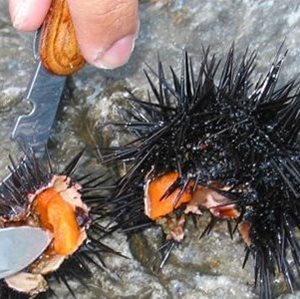 r Philip Hayward from Southern Cross University says that sea urchins have been wreaking havoc on the nations reefs by consuming huge amounts of kelp which has subsequently impacted on lobster and abalone stocks.
r Philip Hayward from Southern Cross University says that sea urchins have been wreaking havoc on the nations reefs by consuming huge amounts of kelp which has subsequently impacted on lobster and abalone stocks.Hayward says that the commercial harvesting of sea urchins may be a more environmentally and economically sound control strategy as current projects are not all that effective in reducing wild stocks.
“The funding that comes in for them is for short-term initiatives, but as soon as they leave, the stock will regrow. You really need an approach which sees people regularly [removing them],” he told ABC News.
John Keane from the University of Tasmania is studying the ecological effect of commercial fisheries, and says that early findings are positive.
"From our diving that we've been doing over the last few weeks, it looks like in some areas where there has been a fishery there is some regeneration happening, so yeah, the early signs are positive."
The majority of sea urchins produced in Australia are exported to Asia, with Hong Kong being the industry’s biggest customer.
Hayward says that although they are widely renowned as a delicacy overseas, Australians are relatively reticent when it comes to consuming sea urchins, and that we should embrace the notion of adding sea urchins to our diet.
"When they're fresh it almost deliquesces in your mouth, you feel it kind of fizzing and dissolving," he said.







